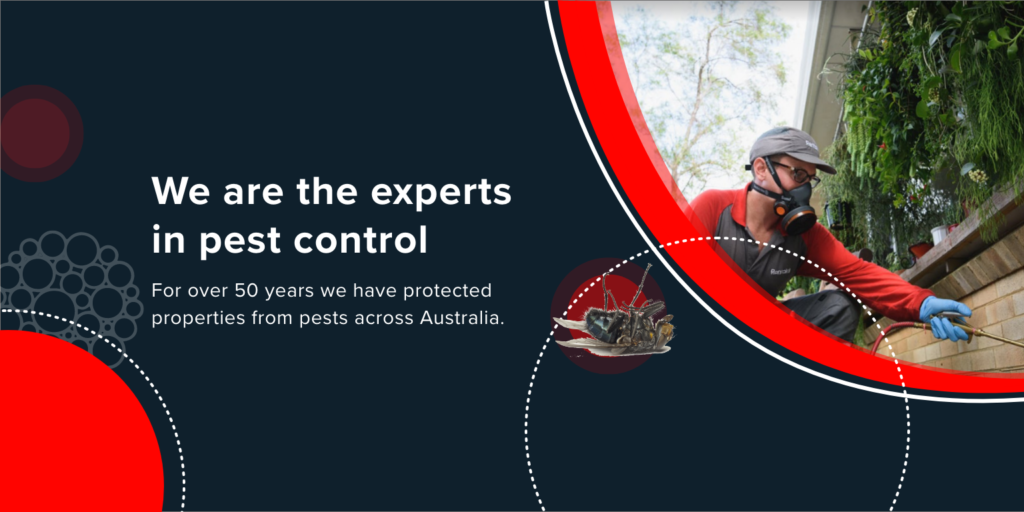Pest control is no longer just about setting traps or spraying insecticides. As we move into 2025, the pest treatment industry is evolving, focusing on innovative, more efficient, and safer methods to deal with pests in both residential and commercial settings. From high-tech solutions to integrated strategies, this article explores the modern options that are proving to be the most effective in tackling pest issues today.
1. Smart Pest Control Technology: The Future is Here
In recent years, technology has started to play a major role in pest management. In 2025, smart pest control devices have become one of the most efficient and reliable ways to monitor and manage pests. These systems use sensors to detect pest activity and send real-time alerts to property owners or pest control professionals. They can also automatically activate traps or deterrents when pests are detected.
For instance, Rentokil’s use of smart traps has significantly improved how pests like rodents are handled. These traps not only capture the pests but also provide data on pest activity, allowing pest control specialists to devise more targeted and proactive treatments. Such innovations are not only more effective but also minimise the need for chemical interventions, making them a safer and more sustainable choice.
2. Heat Treatment: Non-Toxic and Highly Effective
Heat treatment has gained popularity as a chemical-free, environmentally-friendly solution for pest problems, especially for termites, bedbugs, and other insects. The process involves raising the temperature of a property to a level that is lethal to pests while being safe for the structure. Heat treatments are particularly effective for infestations that are difficult to reach using traditional methods, such as bedbugs that hide in cracks and crevices.
As we move into 2025, this method is becoming more refined, with advanced systems that can target specific areas more precisely, reducing the risk of damaging furniture or other valuables. Rentokil’s heat treatment services offer a safe and efficient solution for severe infestations, providing customers with a non-toxic alternative to harsh chemicals.
3. Baiting Systems: Long-Term Solutions for Rodents and Insects
Baiting systems have been a staple in pest management for decades, but modern versions are now more sophisticated and effective than ever. These systems use poison bait or traps that are strategically placed in areas where pests are most active. New advancements allow for the bait to be more attractive to pests and more targeted, reducing the amount of bait needed and ensuring minimal impact on non-target species.
Rentokil’s integrated baiting systems, for example, are designed to monitor rodent activity and deploy treatment only when necessary. This reduces the use of harmful chemicals, offering a more eco-conscious option for pest control. These baiting systems can be installed and monitored remotely, ensuring that they are always functioning optimally, which helps to maintain a pest-free environment long term.
4. Biological Pest Control: Nature’s Way of Balancing the Ecosystem
Biological control involves the use of natural predators, parasites, or pathogens to manage pest populations. While this approach has been around for some time, advances in our understanding of ecosystems and pest behaviour have made it more effective. For example, the introduction of natural predators such as ladybugs to manage aphids, or parasitic nematodes to control insect larvae, is gaining traction in integrated pest management strategies.
In 2025, biological pest control is being integrated with other technologies for a multi-pronged approach to pest management. Rentokil’s biological control programs aim to use nature to restore balance in the ecosystem without harming other species. This approach is especially useful in large agricultural operations or properties with significant outdoor areas.
5. Chemical Treatments: Advanced Formulations for Targeted Control
While the trend is moving towards eco-friendlier solutions, chemical treatments are still necessary in certain situations, particularly for severe infestations. However, the chemicals used today are much more targeted and environmentally conscious than those used in the past. Modern pest control companies, including Rentokil, focus on using low-toxicity chemicals that pose less risk to humans, pets, and the environment while still being highly effective at eliminating pests.
In 2025, there is a stronger emphasis on using biochemicals or synthetic treatments that mimic natural substances but are more potent and longer-lasting. These treatments are designed to be applied in a way that minimizes exposure to non-target species, ensuring that only the pests are affected.
6. Prevention: The Key to Long-Term Pest Management
While many pest control methods focus on treating an existing infestation, prevention is becoming a central component of pest management in 2025. Advanced monitoring systems, early detection tools, and regular inspections are now critical in preventing pest problems before they start. For example, Rentokil’s proactive monitoring systems help detect pest activity early, before it becomes a full-blown infestation.
Regular maintenance and sealing entry points around a property can also significantly reduce the chances of pests gaining access. As part of its ongoing commitment to pest prevention, Rentokil provides customers with actionable advice on keeping their properties secure, such as identifying potential problem areas and maintaining clean environments that are less attractive to pests.
7. Sustainability: A Focus on Minimal Impact
As consumers increasingly demand environmentally responsible solutions, pest control companies are investing in sustainable methods that reduce chemical usage and minimize ecological footprints. This includes the use of non-toxic materials, safer disposal methods, and the integration of eco-friendly technology.
Rentokil, for example, is committed to providing sustainable pest management services that balance effectiveness with minimal environmental impact. By focusing on integrated solutions and responsible chemical use, the company is ensuring that pest control remains effective while also safeguarding the environment.
Conclusion: Pest Control in 2025 and Beyond
The future of pest control is shaping up to be more technologically advanced, eco-conscious, and efficient than ever before. With innovations like smart traps, heat treatments, and targeted baiting systems, pest control services are evolving to meet the demands of both residential and commercial customers in 2025. At Rentokil, we understand the importance of using the most effective and sustainable pest control options available, ensuring that our clients can enjoy a pest-free environment without compromising on safety or the environment.
As the pest control industry continues to advance, the key will be to integrate these new technologies and methods into a holistic, proactive approach to pest management. By working with experts like Rentokil, you can ensure that your property is not only free from pests today but is protected for the future.
For more information on how Rentokil can help you manage and prevent pests in 2025, reach out to us for a consultation. Let’s work together to create a pest-free environment that lasts.



